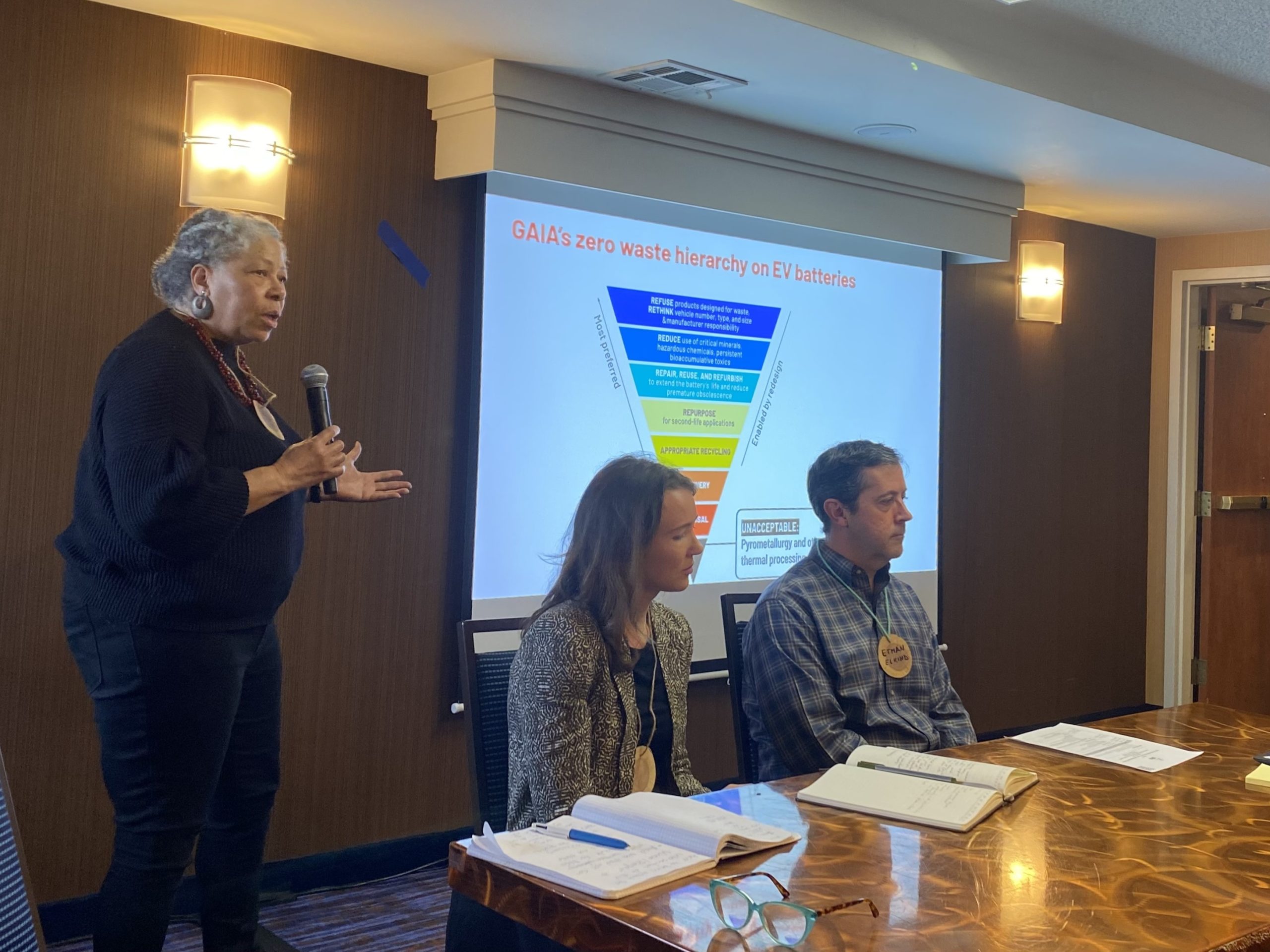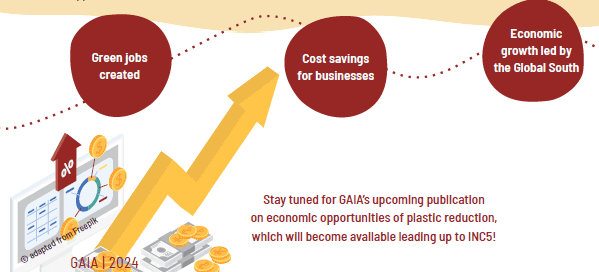By Programs Manager of Era/FoEN, Maimoni Ubrei-Joe
During a webinar titled “Embracing Zero Waste: A Path to Addressing Climate,” which was hosted by Environmental Rights Action/Friends of the Earth Nigeria (ERA/FoEN) in collaboration with the Global Alliance for Incinerator Alternatives (GAIA) and other member organizations, they had a discussion about zero waste systems.
Mariel Vilella, the director of the Global Climate Program at GAIA, stated that 70 percent of the world’s greenhouse gas emissions are caused by the product life cycles of garbage, which include its extraction, transportation, and disposal into the environment. According to Mariel, the waste industry is the third largest generator of anthropogenic methane. Since anthropogenic methane has a warming potential that is 82 times greater than that of carbon dioxide, it is an exceptionally hazardous greenhouse gas and a superior pollution.
According to her, the creation of plastic and the pollution that it causes also results in greenhouse gas emissions at each stage of the lifecycle—from its beginning as fossil fuels through refining and manufacturing to disposal emissions at the end of life. She also mentioned that waste-to-energy incinerators are also considered to be extremely polluting facilities. She stated that composting, source reduction, and energy recovery are zero waste strategies that can be used to reduce GHG emissions from waste, as a powerful mitigation approach that is adaptable to different needs and circumstances. She highlighted the key takeaways from a Zero Waste to Zero Emissions modelling study of eight cities that was conducted by GAIA in 2022.
She went on to point out that the zero waste strategy, in addition to having positive effects on the environment such as less air pollution and fewer floods, also has positive effects on society, the economy, and institutions. These benefits include improved public health, a reduction in poverty, the creation of jobs, and increased public involvement and participation.
Chima Williams, Executive Director of ERA/FoEN, was another one of the people who spoke during the webinar. He remarked that it is high time that the fallacies that are embedded in the current waste management systems in Nigeria and around the world be examined and replaced with regulations that are binding. Flooding is cited as an example of the destruction, loss of life, and loss of property that may be attributed to the presence of plastic trash in the world. According to him, the global south requires additional education regarding the threats posed by plastic garbage and the effects it has on the earth. He went on to say that the webinar, along with other platforms of a similar nature, are avenues to participate in and collectively join hands in the fight against plastic waste as no one group can do it all by themselves.
Leslie Adogame, Executive Director of Sustainable Research and Action for Environmental Development (SRADev), indicated that there is a significant gap in policies connected to waste management and climate change. Adogame’s statement was made on behalf of SRADev. He added that GAIA has members in Nigeria with the goal of bridging the gap between waste reduction and climate change while developing ideas, policies, and activities that will promote waste reduction as an important climate action.
The Programs Manager of Era/FoEN, Maimoni Ubrei-Joe, emphasized the main successes of GAIA and ERA in promoting zero waste, including the creation of the Zero Waste Ambassador, in order to promote zero waste policies at the local level.
The importance of zero waste in global south countries cannot be overstated. These countries often face unique challenges in waste management and are disproportionately affected by the impacts of climate change. Implementing zero waste practices can not only reduce greenhouse gas emissions and mitigate climate change, but also create opportunities for sustainable economic development and improve public health in these regions. Additionally, embracing zero waste principles can help preserve natural resources, protect biodiversity, and foster a more resilient and equitable society for future generations.
ENDS




























